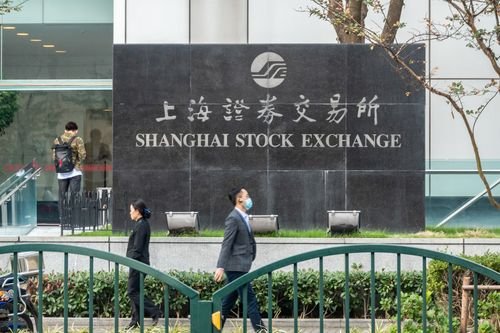China’s army of small investors want in on the GameStop mania

The frenzy over GameStop has inspired amateurs everywhere to shake up stock markets. Now China’s massive army of retail investors wants to get in on the action.
Talk of the video game retailer’s epic share surge has taken over Chinese social media and the eye-popping gains in that stock and others have become the envy of the country’s young day traders. They’re now calling on each other to band together to emulate their American counterparts in driving up the share prices of struggling companies.
“Market makers are trembling in front of retail investors who grouped together,” wrote one user on the social media website Weibo. “It will soon be China’s turn.”
Just as Millennials and Gen Zers in the United States have bemoaned the hedge funds and short-sellers that are part of the Wall Street elite, many small investors in China have cried foul over what they see as exploitation of the market by the big institutions.
Mainland China’s financial markets are very different to New York’s. Short-selling is highly regulated and incredibly rare, making it hard for Chinese investors to replicate the US frenzy that has pumped up GameStop shares as a way to stick it to hedge funds that bet the company’s stock would crash.
Even so, everyday investors in China have a ton of influence over market activity. There are more than 177 million retail investors, or individual traders, in China. That’s 99% of the investor base, according to December statistics compiled by the China Securities Depository and Clearing Corporation. And they have their grievances, too.
Mom-and-pop investors often complain that they are being harvested like “leeks” — a common vegetable in the Chinese diet” — by the big players cheating them out of money they think they deserve. (The government can sometimes be the target of this anger, too, if the broader market is doing poorly.)
“This is so awesome,” wrote another Weibo user, referring to the GameStop saga. “The ‘leeks’ from all over the world should all unite.”
Chinese investors could in theory try to collectively push up the price of an individual stock and then dump it before institutional investors do. But that’s a tall order, given the resources and knowledge that big-time stock pickers have. And institutional firms that focus on long trades can ultimately benefit from stock surges.
Hard to replicate
Dictating major market swings is “theoretically” doable for Chinese individual investors, said Kenny Tang, CEO of Royston Securities, a Hong Kong-based brokerage firm, given their familiarity with using social media chat rooms to place bets on individual stocks.
“You can imagine it’s not hard for some of them to gang up and have an influence on individual stocks, especially small caps,” said Tang.
China is no stranger to market volatility driven by frenzied trading. When the Nasdaq-style Star Market launched in Shanghai in 2019, local investors helped some of the stocks skyrocket in value. Shares in one company rocketed by 400% on the first day of trading.
The Chinese government and state media are also keenly aware of how those individual investors can drive shares. State media, for example, called on local investors to pour money into markets last summer as the economy recovered from the coronavirus pandemic. When the rally appeared to be moving too fast, some news outlets dialed back a bit and encouraged more conservative trading.
Analysts warn, though, that coordinated trading in a country like China, where everything is highly regulated, is fraught with peril.
“If you catch regulators’ attention, it probably won’t end well for you,” said Tang, who added that people who attempt to organize big market swings risk arrest, should the government suspect them of stock market manipulation.
Others, like retail investor Luke Chen, aren’t really sold on the idea of an amateur revolution in China because of how much more professional knowledge the established investment firms hold.
“Individual investors are way less powerful than big investors in terms of capital size, investing knowledge — even some trading apps are exclusively better optimized for big investors,” said Chen, who is based in Shanghai.